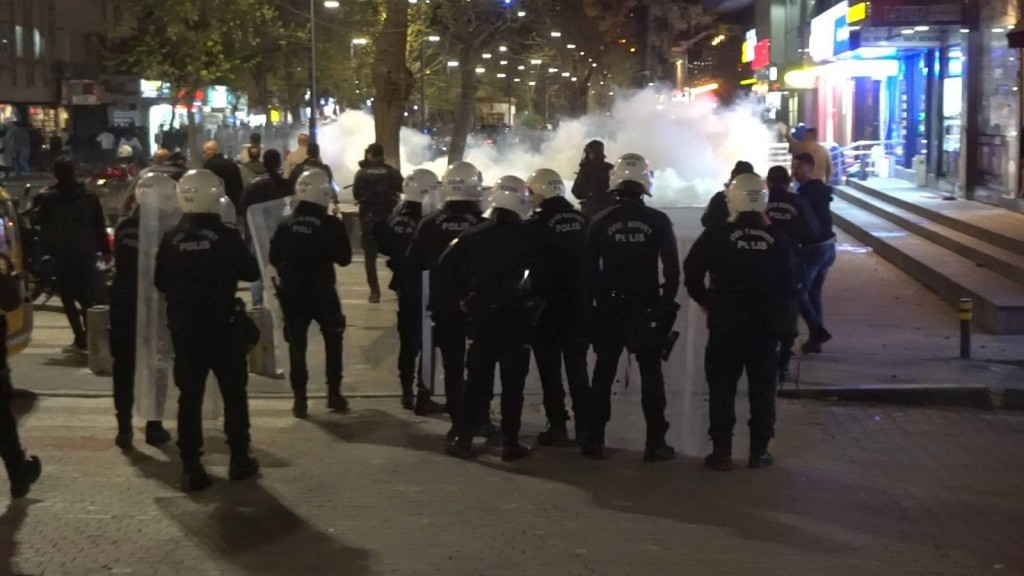The International Press Institute (IPI), a global network of editors, media executives and journalists for media freedom, welcomes the statement of the European Union Delegation to the Council of Europe in which the delegation expresses deep concern over press freedom and the rule of law in Turkey.
The statement, issued by the Delegation in agreement with the EU Heads of the Mission to the Council of Europe, says that a recent court decision upholding jail sentences for journalists and staff with the newspaper Cumhuriyet “run(s) counter to the principles of freedom of expression and media freedom, cornerstones of any democratic society, as enshrined in the European Convention on Human Rights”.
IPI research shows that Turkey has consistently violated those principles by arbitrarily jailing journalists and denying them a fair trial. Nearly 150 journalists are currently behind bars in Turkey with dozens more facing criminal prosecution. Journalists targeted in the crackdown face anti-terror and defamation charges for which prosecutors have produced no credible evidence.
IPI’s #FreeTurkeyJournalist campaign is focused on securing the release of all journalists in prison, the dropping of unfounded or politically motivated charges, and ensuring that the rule of law and the rights of defendants are upheld in journalists’ trials.
“The statement of the EU Delegation, supported by the Member States as well as a number of non-EU member countries, is a welcome move in highlighting the ongoing violations of press freedom, free expression and the rule of law in Turkey,
“IPI Turkey Advocacy Coordinator Caroline Stockford said. “Turkey must take steps to remedy the situation, starting by freeing all journalists jailed in connection with their work.”
Earlier this month, nearly 50 MEPs joined an IPI-led resolution calling on Turkey to release jailed journalists and underscoring the lack of domestic remedy for journalists whose rights had been violated.
The text of the EU statement is below. The online version can be found here.
Local EU Statement on human rights in Turkey
1. The European Union Delegation to the Council of Europe issues the following statement in agreement with the EU Heads of Mission to the Council of Europe.
2. The indictments announced on 20th February against Osman Kavala and 15 others raise questions as to the adherence of the Turkish judiciary to international and European standards. This was also noted, amongst others, by the Council of Europe Commissioner for Human Rights Dunja Mijatovic in a statement published on the same day.
3. Using the 2013 Gezi Park protests as a pretext to seek aggravated life sentences against civil society representatives creates a climate of fear and discourages peaceful assembly. Systematic delays, detentions with insufficient evidence, and criminal prosecution of people exercising their fundamental right to freedom of expression and freedom of assembly cast serious doubts as to whether the judicial process in Turkey respects the principle of the presumption of innocence and right to a fair trial.
4. Moreover, the convictions of journalists from the Cumhuriyet newspaper on 18th February run counter to the principles of freedom of expression and media freedom, cornerstones of any democratic society, as enshrined in the European Convention on Human Rights.
5. As a party to the European Convention on Human Rights and as a member of the Council of Europe, Turkey has committed to respect the principle of the presumption of innocence and the proper application of pre-trial detention. Detention of journalists, members of parliament, human rights defenders and academics, often without indictment, for exercising a personal and professional right to freedom of expression runs counter to Turkey’s obligations. In this respect, the EU calls on Turkey to comply with the relevant caselaw of the European Court of Human Rights.
The following countries align with this statement: Albania, Andorra, Armenia, Bosnia and Herzegovina, Iceland, Liechtenstein, Republic of North Macedonia, San Marino, Serbia and Norway.




